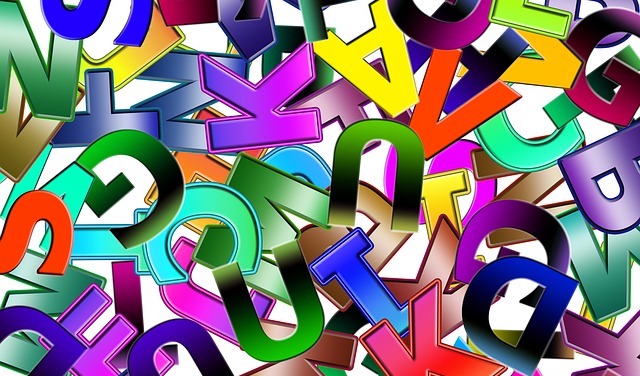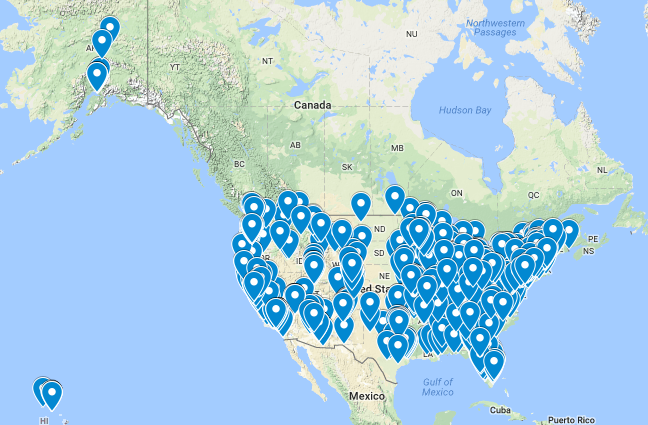What Publishers Are Doing Wrong With Their Websites
I’ve been working for the past two weeks updating and upgrading my list of publishers on PublishersArchive.com. I’ve visited literally hundreds (maybe even thousands) of websites set up by publishers to sell their books and promote their authors, and I’ve noticed a few things that a great many publishers are doing, or failing to do, that limits the effectiveness of their sites.

Some of the problems with publisher sites are technical, but incredibly easy to remedy. Others issues are related to content. I'll start with the former:
Failing to Take Advantage of Title Tags
This is probably one of the easiest things to do to improve search engine ranking and user-friendliness on a website, and yet so many publishing sites that I’ve visited have completely failed to capitalize on their title tags.
A surprising number of sites I’ve visited over the past few weeks had nothing at all in the title tag. An even greater number of sites had completely unhelpful and unrelated text as their title tag. This is a huge problem, since search engines use the title of a site as the link in search engine results, and Google in particular still uses the title tag as a ranking factor in their results.
But even if Google can compensate for your unhelpful tags, in an Internet where tabbed browsing is the norm, it is extremely important to use good title tags because that is what identifies your site in a browser’s tab.
Take a look at the image below. This is exactly what I see in one of my browser windows right now. There are three publisher websites tabbed on the screen.

It’s obvious what two of them are, but what is the third? It’s somebody’s home, but it’s not mine. If I were a customer who tabbed away to check something else then got distracted, this certainly wouldn’t remind me to come back and finish my purchase.
Not Using Site Icons
Looking at the tabs, you’ll also note that the University of Arkansas stands out because it uses an icon. While in past years the icon was a bit of a vanity luxury on a website that only really got seen in bookmark folders, now the favorite icon is a feature in the tabs and address bar of every major browser. This again is a simple fix, but one that very few publishers have implemented.If you’ve got a logo that works on the spine of a book, it’ll work just as well as an icon for your site. It’s a great branding tool, and one that’s so easy and inexpensive to implement, there’s no excuse not to do it.
Missing Meta Descriptions
Although Google and the other search engines have devalued the meta description tag as a ranking tool, it still holds a great deal of value if you use it correctly.
If you know the search terms that people use most frequently to find a page, you can include those in your meta description and Google will show that description in the search results. If you have no description tag on your page, Google will grab some random text it thinks is relevant to the search. If you can control what Google displays, you have the opportunity to craft some text that will compel browsers to click through to you rather than the next site down the list. If you’ve got that opportunity, it’s a shame to waste it.
Not Connecting to Social Media Accounts
I am not at all sure why, but there are a surprising number of publishers who use both Twitter and Facebook to connect with readers and authors, yet don’t have any links to their social media pages on their website. If you’re using social media, connect your accounts with your site, and your site with your accounts. It only makes sense.
Most publishers failing to properly integrate their online properties simply didn’t have any mention of Facebook, Twitter or YouTube at all, but the one site that sticks in my mind had a “Find us on Facebook” button with no link to their Facebook page. I suppose they were serious about the finding part, and thought a direct link would be cheating?
Linking to Social Media Accounts that are Dormant
If your company is using social media, you should definitely link to it, and integrate it into your site. However, do not link to your Twitter account if the only thing there is a two year-old tweet saying, “We’re now on Twitter! Yay!” In fact, if you’re not using Twitter or Facebook regularly but have accounts on those services, make them private until you are ready to make use of them. Social media is there to connect with your customers and fans. If you’re not connecting, don’t advertise it.
Making It Difficult For Visitors to Do What They Want To Do
If you are unsure what information to include on your website, start by making a list of the things that people that visit your site are interested in. Here is a list for you to begin with:
- Writers will want submission guidelines,
- Other publishers and agents might want to get permissions or inquire about rights,
- Booksellers and librarians will require information on how your books are distributed,
- Readers might want book club discussion guides, or a way to write your authors,
- Educators will want student activities related to your books, lesson plans,and a way to request a school or classroom visit from an author.
- Media will want access to a press kit including press releases, author biographies, book summaries, and related high-resolution images, as well as links to previous press coverage.
I’ve seen publisher sites with no contact information, no links to help authors with submissions or bookstores with distribution information… just a list of books. If I’m describing your company’s site, you’re not helping your customers or yourself. Take a look at your website from the perspective of the people visiting, and make the information they’d want as visible and accessible as you can.
Read These Next
The A to Z of Self-Publishing
This excerpt from "The Economical Guide to Self-Publishing: How to Produce and Market Your Book on a Budget" takes you through self-publishing from A to Z
When Characters are Real
If you are the absolute master of all your characters, you can be sure they are not real. If, however, they surprise you now and then, you might just have the real thing.
Map of Publishing In the USA
Publishing has been, historically, an urban activity. Curious about whether the current growth of independent and small publishers is bucking that trend, I decided to import some data on US publishers into Google Maps. This is the result.






